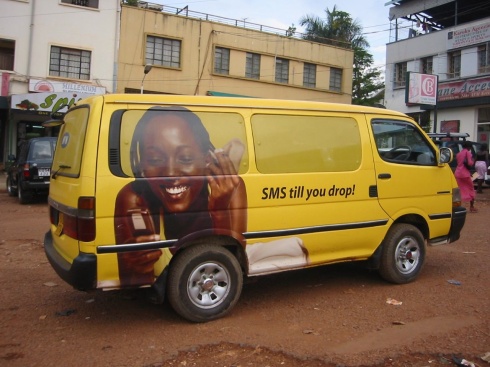Vodafone is launching a handset that will sell for under $15 – making it the lowest cost mobile phone on earth. It is built with what, Patrick Chomet – Vodafone Group Director of Terminals, describes as ’emerging market consumers’ in mind. What he really means is poverty-struck ones.
http://www.youtube.com/v/FEYtf-E-fP4&hl=en_US&fs=1&color1=0x3a3a3a&color2=0x999999
It is easy to forget, with all the hype around apps, smartphones and spangly products like the iPad that basic mobile phones are facilitating a much more basic and fundamental transformation in developing countries across Africa and Asia
In countries where huge swathes of the population live in rural areas with little or no communication infrastructure the introduction of mobile technology can have a profound impact.
The mobile phone has been a significant contributor to the development of free and fair elections in Africa. Most modern election observation efforts take advantage of the recent proliferation in mobile phones and nearly all use mobile phone calls as part of their communications system.
In Zimbabwe the Movement for Democratic Change’s to used camera phones to photograph blue protocol documents posted at all polling stations in Zimbabwe in an attempt to document their poll-watching.
The South Africa-based election monitoring group, The Independent Result Center, set up a website, ZimElectionResults.com, to publish independent election results. The website was updated by specially trained agents who were taking pictures of the results on their mobile phones. The polling agents took photographs of the data displayed at individual polling and sent the images back to a manned call centre.
Even when camera technology is not available, mobile phones can be a powerful tool for fledgling democracy. In the recent election in Ghana, for example, mobile phones were an integral part of the Coalition of Domestic Election Observers’ (CODEO) observation effort. Even without cameras texts and phone calls allowed them to quickly collect and share a comprehensive body of information on the conduct and results of the election analyzing 54,570 datapoints within a few hours.
Much of the news dissemination in Africa is already through mobile phone technology. As more people have access to a mobile phone than to electricity access to internet is still relatively rare (6.7% penetration – in comparison to 37% for mobile phones) and printed papers don’t make it very far out of the cities so mobile phones and radio provide for the news to most of the continent. Headlines are sent out in as SMS messages and or a special news headline number can be called to
Unlike radio it is hard for authorities to block mobile signal without severely disrupting the country’s infrastructure and economy. In times of unrest or authoritarian rule the SMS can function as the only source of news. The London-based SW Radio Africa sends out a selection of headlines to 30,000 people in Zimbabwe via SMS.
Mobile phones are an important economic stimulus too – and it is in this sphere perhaps that the new Vodaphone models will have the most significant impact.
Bangladesh is often used as the case study for the impact that mobile telephony can have on the economically disadvantaged. In the late 1990s Grameen Bank, a Dhaka-based for-profit enterprise set up Grameen Telecommunications, a non-profit organization that provided low-cost phone services in rural areas. Village entrepreneurs purchased mobile phones and then sold on phone services to other villagers. The investment created a swathe of rural mobile phone entrepreneurs, 95 percent of whom were female.
Meanwhile villagers benefited from instant communication – they were able to contact distant family members making it easier to find employment opportunities, it enabled farmers to check prices in different markets before selling produce, and eventually allowed the quick and easy transfer of funds. After it’s success in Bangladesh a similar project – village phone – was launched in Uganda.
With the launch of a mobile phone costing under $15 these micro-economies fuelled by mobile access will become more accessible across the developing world and should, in time, have more impact than a hundred Bonos could ever hope to achieve.

